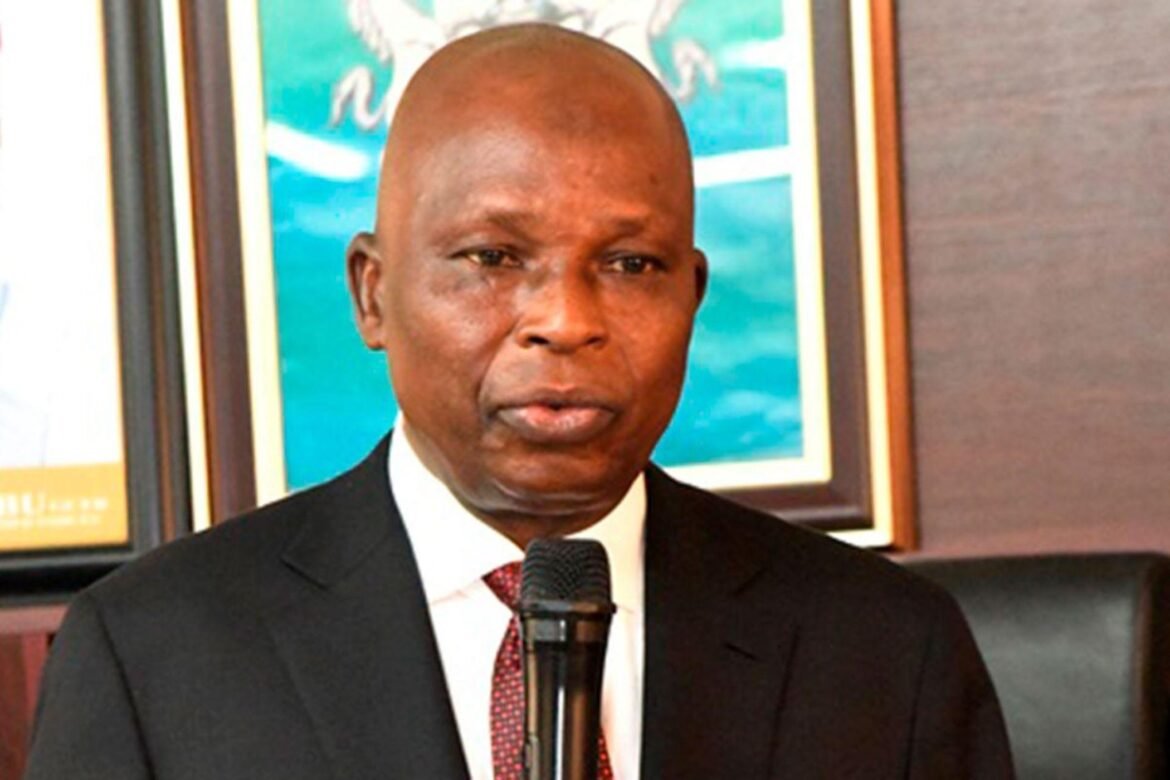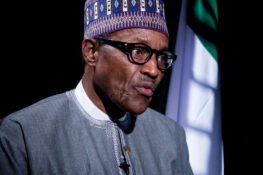Wale Adedayo, the former chairman of Ijebu East Local Government Area (LGA) of Ogun state, is a man I admire.
He fought for himself, his pals, his people and the constitution when he dared the Governor of Ogun State, Dapo Abiodun in 2023.
Although he lost the fight, Adedayo did not lose the battle.
The result is the autonomy which all local governments in Nigeria must now enjoy.
Adedayo was suspended by councilors of his local government for financial impropriety days after he accused Governor Abiodun of hijacking funds meant for the third tier of government in the state.
The bold and courageous local chairman had accused Governor Abiodun of withholding federal allocations due to Ogun State LGAs for two years.
“Since we (Ogun State Local Government Chairmen) got on board in 2021, it has been ZERO Federal Allocation to each local government,” Adedayo wrote.
The open letter went viral.
Nigerians love stuff like that.
Resultantly, the open letter upset the governor.
In the typical Nigerian damage control, Adedayo, joined by other 19 LGA chairmen in the state, paid homage to the governor, all of them prostrating to the governor for forgiveness.
But it was too late.
Abiodun had decided no local government official should be independent and courageous to challenge his authority and power.
In the end, Abiodun held his job and Adedayo lost his own.
Adedayo was accused of misappropriating N4 million from local government account in 2022, wastage of N2 million on Iṣẹṣe Day in 2022 and not accounting for a tour allowance of N260,000 in 2023.”
In the heat of the trial, Abiodun never accounted for N52 billion local government funds he was accused of taking since 2019.
The governors have been exercising powers not granted under the constitution since the fourth Republic started in 1999.
They not only take funds not allocated to the state, they fail to allow elections to hold.
And when elections are held, they put their own people in power in disregard of electoral outcomes.
The problem was too big to be fixed because of party politics.
Nigeria’s federal system has been predominantly top-down, with significant power concentrated in the federal and state governments.
Local governments, intended to be the closest administrative units to the people, have often been sidelined and underfunded.
The decision stands as the most significant advancement for democracy in Nigeria since 1999, promising to revitalise governance at the grassroots level, enhance accountability, and promote inclusive development
The centralisation is a visible root cause of inefficiencies, corruption, and a disconnect between the government and the grassroots.
Local governments have struggled to perform their roles effectively due to their dependence on state governments for funding and administrative directives.
While Nigerians have gotten used to concentration of power at the highest level because of years of living under military rule, it got worse at the local level.
Centralisation of power has been a significant hindrance to effective governance and development.
The recent Supreme Court ruling, granting greater autonomy to local governments, marks a transformative shift.
The decision stands as the most significant advancement for democracy in Nigeria since 1999, promising to revitalise governance at the grassroots level, enhance accountability, and promote inclusive development.
The governors have always been the problem and I would never be able to explain how President Bola Tinubu was able to go after them by asking his Attorney-General to get a constitutional answer under law.
It could come at a political cost.
In a landmark decision, the Nigerian Supreme Court ruled in favor of providing financial and administrative autonomy to local governments.
The decision mandates that local governments should receive their allocations directly from the Federation Account, bypassing state governments.
Additionally, it grants them the authority to manage their affairs without undue interference from state authorities.
Used to a system of extreme concentration of power in governance, some Nigerians wondered if this decision was good or bad.
The classic slave mentality is at play! How can freedom and independence be bad at all?
The closest power is to the people, under normal circumstances, the better it should be.
So, it’s been a bit difficult to understand why some Nigerians would even reject the devolution of power.
A little education in basic civics and political philosophy can help those whose minds are cloudy about the significance of the court ruling.
In his book, Common Sense, one of the founders of America, Thomas Paine, reasoned that it would be far more useful if everyone was involved in decision-making about their lives than any government; but the government, being a necessary evil, exists only because we all can’t fit into a room to make decisions together.
His explanation of representative democracy is important because it simply states that the smaller the ratio and distance of elected representatives to the people, the better they are able to serve the interest of those who elected them.
Paine noted in his pamphlet that God never intended to impose kings and monarchs on man, because he created all men equal, and tyranny was only possible because societies got bigger and more complex, asserting that the simpler any thing is, the less liable it is to be disordered, and the easier repaired when disordered.
Paine’s most significant argument, in my view, is the position that the closer and simpler the government is, the easier it is to figure out how to solve problems because “if the people suffer, they know the head from which their suffering springs.”
To some who argue that if we add 774 local government chairmen to the list of those authorised to directly receive money from federal allocation, we would just end up creating more centers of corruption, nothing is farther from the truth.
If creating more centers of power, closer to the people, is enabling corruption, then corruption is the factor that must be dealt with, not the devolution of power.
One of the core principles of democracy is the participation of citizens in governance.
The autonomy granted to local governments will enable greater citizen involvement in decision-making processes.
Local governments, now equipped with financial independence, can be more responsive to the needs and aspirations of their constituents; but more importantly, the proximity and direct interaction with the electorate opens the door to a more accountable and transparent governance system.
Citizens will have better opportunities to hold their local representatives accountable, thereby reducing corruption and mismanagement.
In my reply to one of the proponents of a more centralized power structure, I reasoned that a citizen is more empowered to protest corruption in the local government than in Abuja or a state capital.
But there are many more reasons why the decision of the Supreme Court is a win for democracy.
In many countries, local governments are responsible for providing essential services such as primary education, healthcare, garbage disposal, water supply and local infrastructure.
With direct access to funds, local governments can prioritize and address the needs of their communities more efficiently.
The reduction in bureaucratic red tape and the elimination of delays caused by the dependency on state governments will lead to more timely and effective service delivery.
We should also expect the stimulation of local economies through policies tailored to the unique economic potentials and challenges of local areas, promoting entrepreneurship and job creation.
During the administration of former governor Rauf Aregbesola in Osun State, a resounding complaint was that he brought his own men from Lagos to dominate the economy of the state. It didn’t quite work out.
The most ambitious program to make Osun the food basket of Lagos never materialized. All the land allocated to the Lagos businessmen ended up being converted.
That’s not all. The autonomy of local governments will contribute to the strengthening of democratic institutions in Nigeria overall. Local councils will now have the mandate to function independently, promoting the rule of law and democratic norms at the grassroots level.
Local empowerment will encourage a culture of democracy where citizens see their votes translating into tangible outcomes in their communities.
Strengthened local institutions will also serve as training grounds for future national leaders, cultivating a new generation of politicians who are experienced in governance and accountability.
The Federal Government must finish what it started by fighting for the autonomy of the local government administrators, ensuring that no state government is able to encroach on local administration
Ensuring that local governments have the capacity and competence to manage their autonomy is crucial. Local politicians, not used to operating without the interference of the governors, will initially struggle.
It is in the national interest to expect a period of adjustment and possible errors because capacity-building programs are needed to retrain local officials in financial management, governance, and public administration.
Additionally, mechanisms must be in place to prevent corruption and ensure accountability at the local level – and in the people’s own interest, everyone must participate by attending council meetings, reviewing reports, challenging local officials and participating in local elections.
We must expect resistance from state governors who are used to siphoning funds that were meant for local councils. Governors will be reluctant to cede control and resources to local authorities for some time to come.
The Federal Government started all of this when the Attorney-General of the Federation (AGF) and Minister of Justice, Mr. Lateef Fagbemi, filed a suit at the Supreme Court accusing the state governments of running the local government aground.
The Federal Government must finish what it started by fighting for the autonomy of the local government administrators, ensuring that no state government is able to encroach on local administration.
The ruling of the court is a watershed moment for Nigeria’s democracy.
It holds the promise of transforming governance by bringing it closer to the people, enhancing accountability, improving service delivery, and promoting inclusive economic development.
I take the ruling as one of the most significant advancements of the Nigerian democracy since the return to civilian rule in 1999, because it’s been so troubling that local power had been usurped by most state governors for selfish and political reasons.








